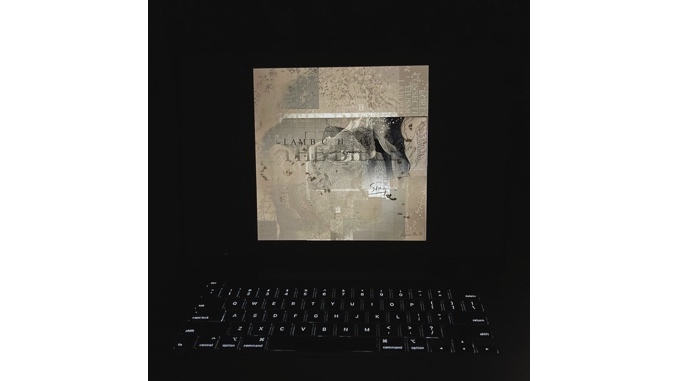Lambchop Sound Rejuvenated on Their 16th Record, The Bible

Lambchop is one of the most prolific bands on Merge Records, having released 15 albums since they signed to the label in the early ‘90s, and The Bible ups that ante yet again. While they may not be the most well-known group on the label’s roster, they’ve always been a band that Merge has always put their full faith behind, and for good reason. Kurt Wagner, the soft-spoken Nashville native often pictured in a trucker hat and thick-rimmed glasses, is a masterful songwriter with a penchant for painting vivid pictures with only his words.
Akin to folk-tinged indie artists like Bill Callahan or Will Oldham, Wagner provides heartfelt, often melancholic lyrics with just a touch of humor like a warm smile or a polite nod to the listener. Lambchop’s songs radiate the feeling of seasons long gone; the warmth of a summer day spent by the lake, the crunch of leaves and the colors of fall, the chill you feel deep in your bones during the coldest winter on record, laying in the grass counting clouds in the spring. The 63-year-old musician has lived a full life; he has experience under his belt and funnels that into song. In other words, he’s seen some shit.
When his life as a professional musician looked to be ending due to COVID, Wagner took a leap and tried looking outside of Nashville to help make his career feel exciting again. The Bible marks the first time Wagner has let someone else take the wheel on production, entrusting those duties to Andrew Broder and Ryan Olson; a relationship forged over the years and rekindled on Instagram Live while Wagner was biding his time during quarantine. This collaboration is why Lambchop sounds grander than they have in several years here, as the chamber-pop sounds of their masterpiece from 2000, Nixon, meld with the experimental electronics Wagner has been toying with since 2017’s FLOTUS and every other record in their vast discography.
The record kicks off with an orchestral overture rising to a crescendo before warm piano twinkling paves the way for Wagner’s entrance. Time has been kind to Wagner’s voice, and maybe the years of nicotine have added a bit of texture, but he can still croon in his peaceful yet haunting baritone. He sings, “I confess I have no purpose / I’m not complaining / Now these days are measured by the number / Thirty summers from today,” as horns swell and cascade around his voice. “We speak in loose abstracted thought / Waiting for a place to fill / It’s not the content of the doing / But what you’re feeling in the end.” It speaks to the nature of our uprooted lives over the last few years, how communication has evolved after having to be so far spaced from those we care about during lockdown, and how just reaching out to the ones you love about any mundane thing means a lot more than it seems on the surface.
Lambchop has always drifted between genres, forever evolving from their early alt-country roots. “Little Black Boxes” takes you on quite a journey, beginning with funk and disco before incorporating elements of house music, some Santana-esque guitar solos, and a gospel-sung chorus for good measure. The vocoder effects Wagner has added to his vocals over the last few albums are still present, though often toned down on songs like “Daisy,” so the warmth of Wagner’s voice can still shine through. The ballad’s sparse arrangement is peppered with synth and the occasional odd vocal sample during unexpected moments.